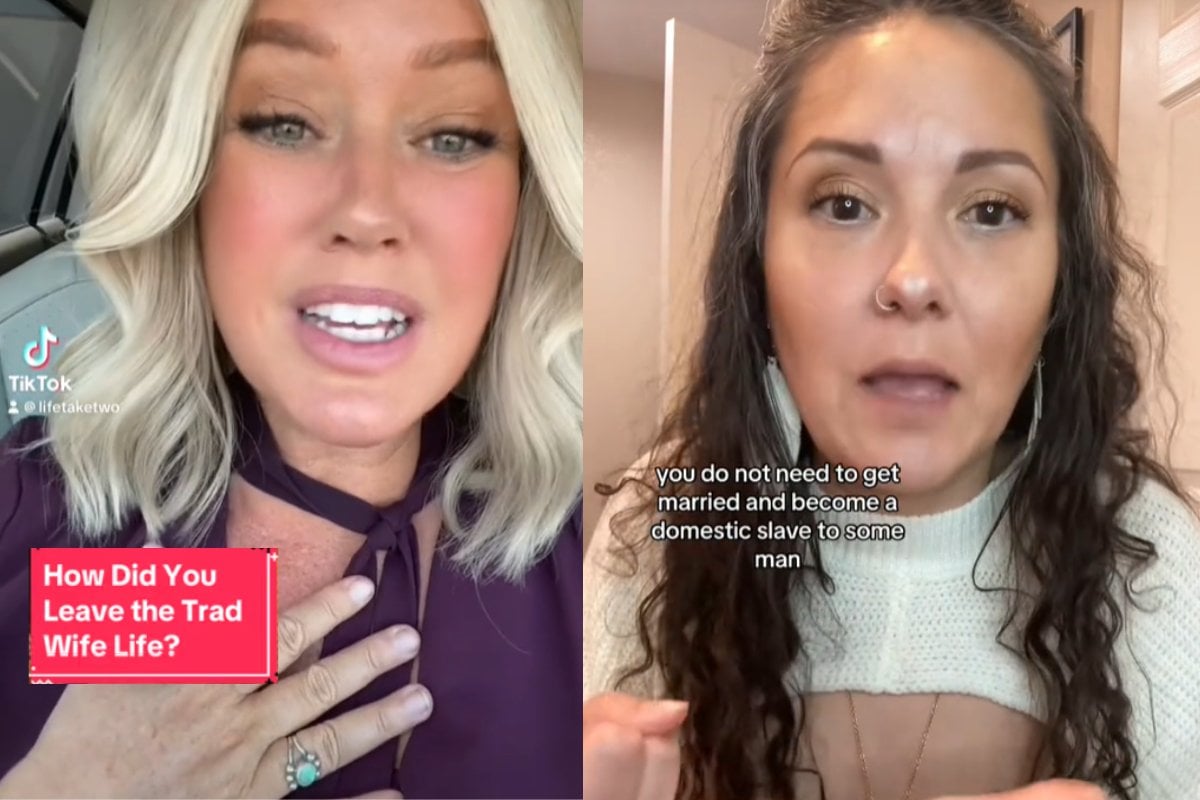
Right now on social media, you've likely had 'tradwife' content flooding your feed.
It follows women — often young, traditionally attractive mothers — staying at home with their countless kids and making meals from scratch.
They take videos of themselves busy in the kitchen — they're baking sourdough while organising perfectly curated breakfasts for their little ones, sometimes even making packaged lunches for their husbands who are off to work.
Many tradwives online post this content in an aesthetic that is very '50s housewife, promoting devotion to one's family, a clear division of labour and a very hetero-normative outlook on gender, femininity, sex and identity.
Think Ballerina Farm or Lex Delarosa.
As one tradwife previously told Mamamia: "My favourite things to do around the home are cook, clean, and take care of myself. I make sure to start the day with a full face of makeup, groomed hair, and a house dress! It's like a uniform and it gets me started on my daily house tasks. I spend anywhere from three to five hours a day in my kitchen and I clean for one to two hours max."
Watch: If a man lived like a woman for a day. Post continues below.

Top Comments